Rings of Power - Season 1 Review
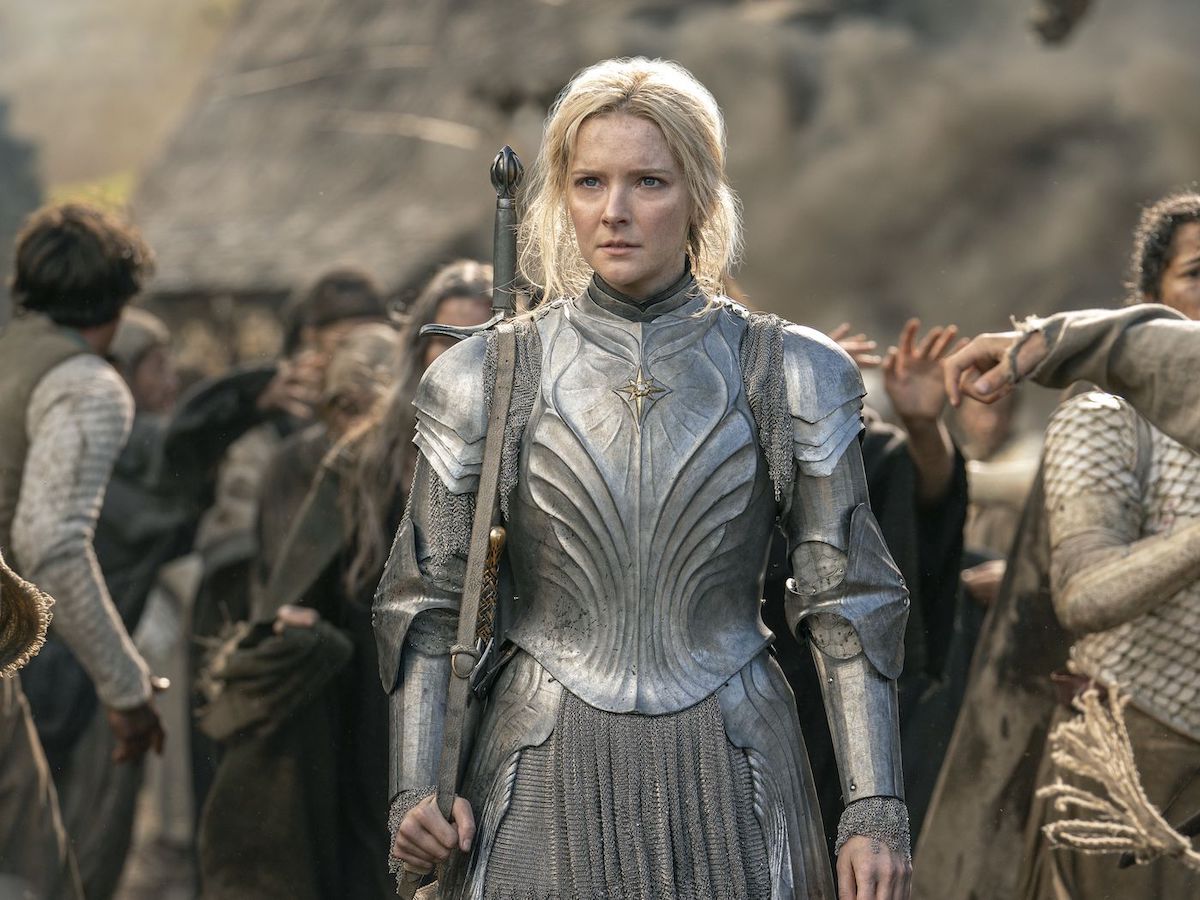
This muddled LoTR prequel has its bright points.
I tried watching Rings of Power back when it first came out. An episode-and-a-half in, and I was bored out of my mind. I put it on the back of the streaming queue until my son, now a huge LoTR fan, asked to watch it. Fortunately, it did get better. Despite the poor pacing, uneven writing, and some bland characters, we both ultimately enjoyed revisiting Middle Earth.
Full disclaimer: I'm no Tolkein superfan. My knowledge ends with the movies and some info dumps from my son. So when people criticize the show for not being faithful to the lore, I'll just have to take their word for it. I can only judge the show on its own merits, not its context in the wider Tolkein world.
And on its own? It's decently entertaining, but has a few big flaws. The plot relies on one inconceivable contrivance after another. At one point Galadriel jumps off a ship in the middle of the ocean, planning to just... swim hundreds of miles to shore, I guess? As if her mere survival weren't improbable enough, on the vast ocean she somehow manages to run into Important Main Characters not once, but twice.
That's just one of the ridiculous coincidences in Rings. Erik Kane of Forbes does a great (spoiler-heavy) takedown of many others in his review.

The Problem with Galadriel
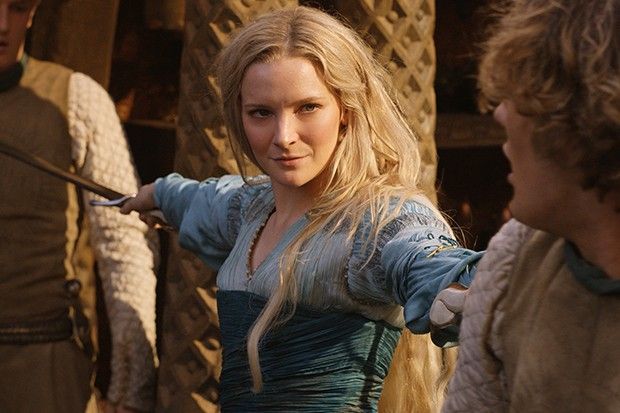
Galadriel, a kick-butt warrior-general with a traumatic backstory, is the kind of interesting female protagonist this blog was made for. Yet somehow I spent the better part of the season actively disliking her character.
She makes boneheaded, rash decisions (like the aforementioned jump from the ship); she's a terrible leader (running her troops into the ground so much that they outright mutiny); and she's arrogant and abrasive to almost everyone she meets. These traits are even more perplexing in someone who's supposed to be a mature, battle-hardened veteran several thousand years old.
I don't mind that she has flaws—I actually love flawed characters, and I think that keeps her from being the overpowered "Mary Sue" that a chunk of the internet seems to think she is. But generally when you have flawed protagonists, they're supposed to work on their flaws, or overcome them to achieve their goals, or at least realize that they're flaws. Galadriel runs around like a bull in a china shop, and doesn't seem to mind all the damage she causes.
This starts to change towards the end of the season. After the destruction of the Southlands village, she seems to pause long enough to think, "Hey, maybe charging headlong into this wasn't such a great idea." Season two will show if the warmth she shows toward Theo and Queen Miriel in the wake of that debacle was just a blip or some actual character growth.
An Epic Bromance
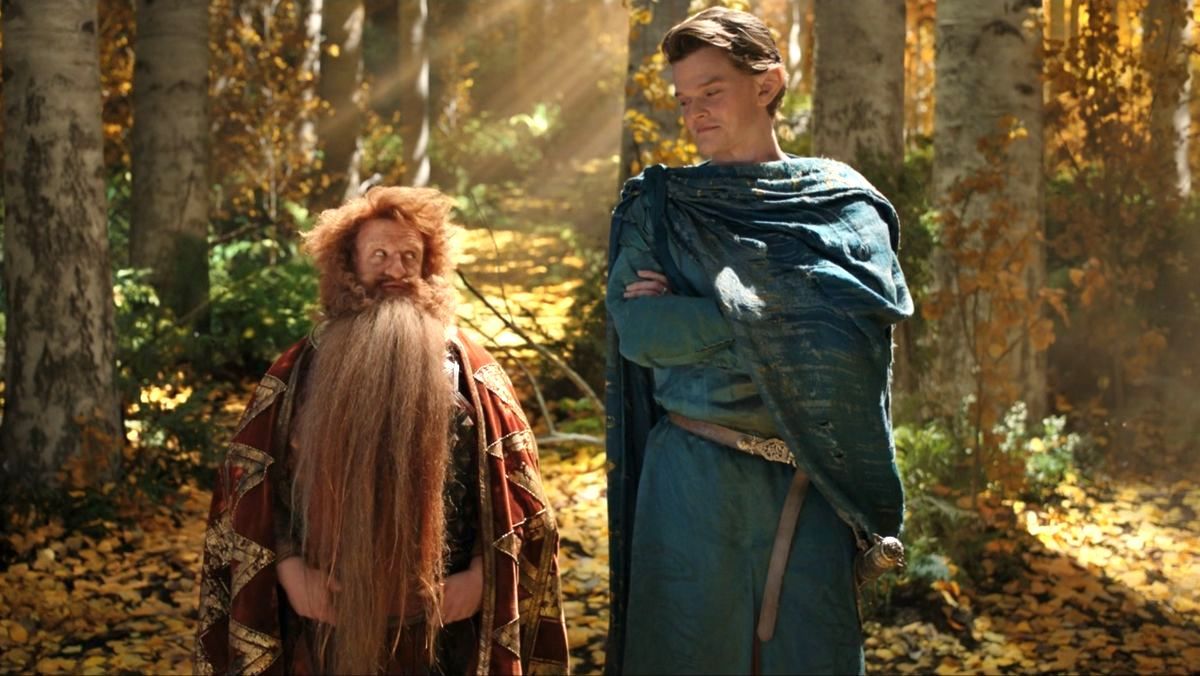
Like so many fans, I absolutely adore the relationship between Durin IV and Elrond. From bickering to bantering to genuine displays of deep care, it's a healthy and wholesome "found family" relationship and hands-down the best part of the show.
The original LoTR was notable for the way Aragorn displayed healthy masculinity. His brotherly affection towards Boromir and respect towards Arwen and Eowyn didn't undermine his strength. He showed that one could be a king, and a badass fighter, and still be humble enough to share the spotlight on his coronation day with the Hobbits. In a similar vein, Durin and Elrond can compete over smashing rocks and still share a choked-up goodbye. It's awesome.
The Reluctant(?) King
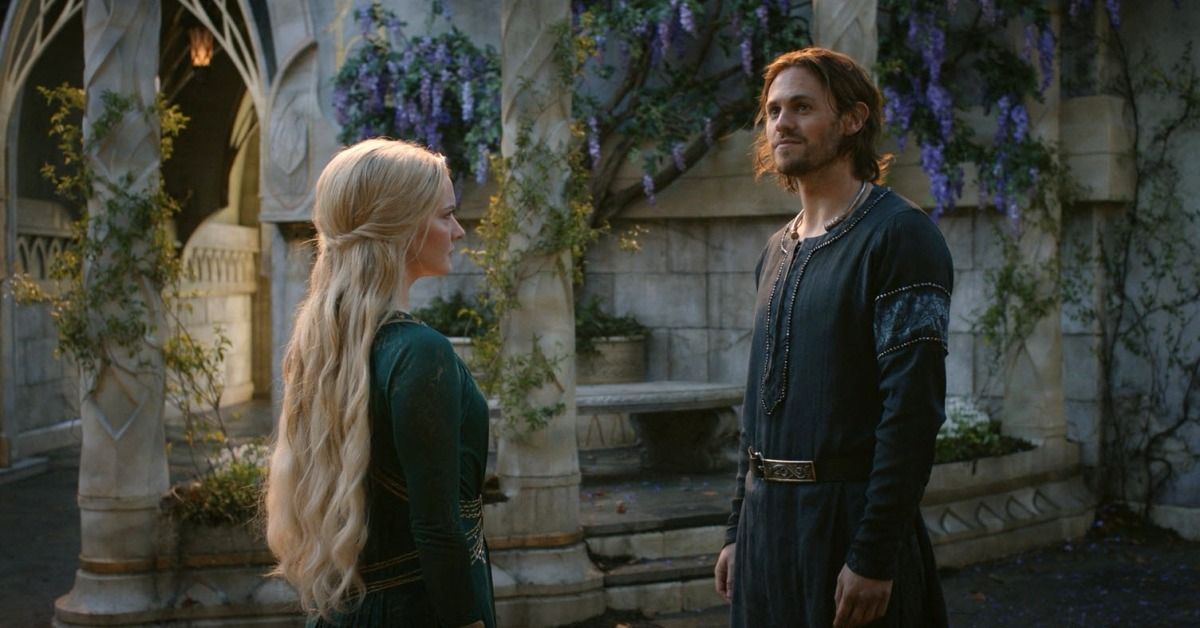
As a casual fan, I wasn't familiar with Sauron's backstory. I thought he was just Mr. Evil Incaranate. I've since learned that Rings takes place during his "reformed" phase, where he was (maybe?) legit trying to do good after Morgoth's defeat.
The thing is... almost none of that comes across in the show itself. They could have done a really interesting take on "bad guy trying to make up for bad deeds", but that would have required clueing the viewers in on his true identity. By going instead with Mystery Box storytelling and a Big Twist Reveal, they undermined whatever emotional weight they might have had, and introduce some thorny plot questions.
If Halbrand is genuinely trying to reform himself and wants to recruit Galadriel to join him, why does he get all creepy when she challenges him on his identity? Are we really meant to believe that this thousand-year-old baddie is so fragile he turns back to the dark side after one elf-lady rejects him?
Conversely, if he's just pulling strings and manipulating everyone, why protest so hard about being king? Why not use his powers like he did on Galadriel in the finale? What is his actual plan?
It's confusing, and seems to come out of nowhere. Halbrand goes from "bad boy hero with dodgy past" to "full-on heart of evil" in the blink of an eye, and I don't think the show did the work to make that twist make sense.
Ladies of Power
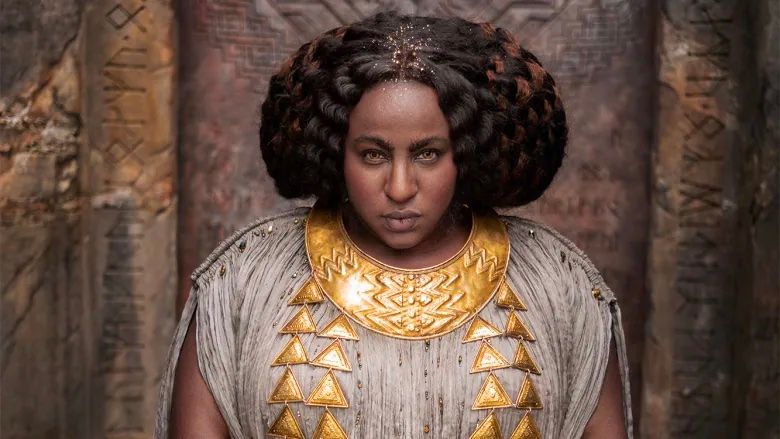
Unlike its predecessors, Rings has a delightfully astonishing number of female characters.
Disa is my favorite, lighting up every scene and bringing a wonderful dynamic to Durin and Elrond's friendship.
Ranting tangent: I think it's utterly despicable that Disa's actress (Sophia Nomvete) and the show's other actors of color received so much racist hate for their roles. I genuinely don't care if Tolkein wrote "it's critical to the story that these people are all white" in big, neon letters across the cover of The Silmarillion (spoiler alert: he didn't). I don't care about the "but it's medieval Europe" arguments (spoiler alert: it's not medieval Europe, it's Middle Earth—and anyway there were people of color in medieval Europe too). Seriously, if you can buy a world with elves and dragons and wizards and magic metal but a Black dwarf is too much? Your priorities are messed up. It's 2023, not 1937, and actual humans are more important than fictional lore.
You Are All Welcome Here @LOTRonPrime @DonMarshall72 #RingsOfPower https://t.co/8txOhlHa2f pic.twitter.com/nWytILT0zG
— Elijah Wood (@elijahwood) September 7, 2022
Ahem, moving on.
I think Queen Miriel gets the short end of the stick, plot-wise. With all the other main characters jammed into the Numenor story, she doesn't have a lot of room to breathe. Her blindness, if handled tastefully, might give her more to work with in season two.
Nori and her friend helping the Stranger are sweet, but the whole Hobbit storyline feels so disconnected from the main action that it's hard to get too invested. I also feel obliged to echo those calling out the show for its problematic stereotypes. While the prevailing theory is that the Stranger is Gandalf, my son is hoping he's instead one of the Blue Wizards. I think that would be a nice direction for them to go, and give the story more freedom.
Lastly, there's Brownwyn. Her romance with Arondir just doesn't have enough foundation to make it believable. I would have liked to see more depth to her as a person. I had to look up her name, because she was just "Theo's mom" all season.
It's great to see a show embracing diversity and showing such a wide range of experiences, from dwarven princess to elven warrior to commoner human mom to big-hearted teen hobbit. Hopefully the next season will give each of them more depth and opportunities.
Ratings
- Princess Power:

- Overall:

- Bechdel Test: Pass
Learn about my Ratings System.

Hijack - TV Series Review
Cassandra in Reverse - Book Review